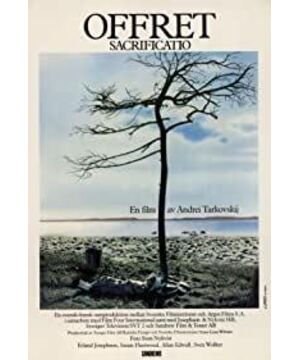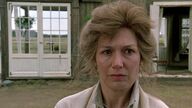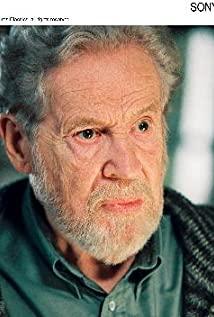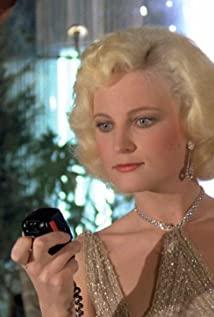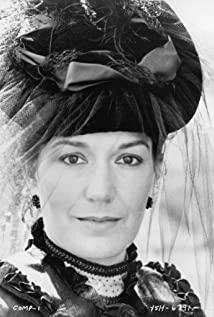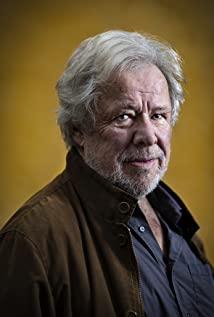During the first ten minutes of the screening, the subtitler sister didn't adjust her state well, which caused me to struggle with my English speed reading ability and vocabulary for the first ten minutes or so. Fortunately, it was fine after it got back to normal.
Similar to "Nostalgia", the story of "Sacrifice" is suspended by complicated lines and cold long shots. This kind of personal style always makes me suspicious that people who can understand Tarkovsky are either poets, philosophers, or the intersection of poets and philosophers - lunatics. Therefore, in the poet's part, some people are capturing; in the philosophical part, some people are sleeping; in the lunatic part, some people are laughing.
Tarkovsky first came up with the idea of "Sacrifice", then filmed nostalgia, and finally shot "Sacrifice", which is completely different from the original idea. His original idea is not speculated for the time being, but the inner logic of the two stories is inherited. Sex is undeniable.
Alexander and his son planted the dead tree, which disappeared for the entire film and returned to view at the end, ending with "relief and hope" for Laota's children. The image of the dead tree withered is similar to the snake in Lu Xun's short stories. It also represents the rebirth in the destruction of evil. The biggest difference between Tarkovsky and Lu Xun is probably the strong religious color in this kind of surrounding redemption. When the news of the outbreak of the third world war came, Alexander's spiritual kingdom collapsed after trembling, and finally found a solution to the "holy communion" under the "mail" of God's prophet. After the "fulfillment", he went mad and burned the house , fell in the water beach, got into the ambulance and escaped to hug...
Piety is justified by confession and sacrifice, and destruction and repayment of faith becomes the final sacrifice. After philosophy loses all possibility of unraveling man's incompletion, God is once again the occlusal of the continuation of the ultimate civilization. A candle in "Nostalgia" burns into the smoke and flames of an entire cottage in "Sacrifice." It's like the pale new hope creeping under Lu Xun's "Dangerous Wind and Poisonous Flame".
And does the so-called hope just mean to encourage the next generation to continue the repeated cycle of the previous generation? The
sneaking snake can be connected end to end to form an endless circle, if the dead tree germinates, will it eventually dry up again? Humans always repeat With the past sorrow and self-deprecating comfort and hope. This ring-like imagery is nowhere more evident than in the katana worn by Alexander. In the beginning, there was one, and the Tao sneaked into the world, and human beings had to return to the "one" no matter how much they went around. Another sad hint is Alexander's self-condition of himself and his son "Japanese". The Japanese concept of "matter sorrow" and the ideas expressed in this film are obviously compatible. Because nature and fate are irresistible, all human struggles seem so superfluous.
I don't know much about the old tower, but after adding too much personal understanding, the value of belief and sacrifice itself is also being re-suspended and then spoken. In the end, whether civilization will bite its own throat and re-interpret it, such a contradiction is probably the most rooted nostalgia of the old tower and the compassion of sacrifice.
And it's probably the best of the less than 200 feature films I've seen.
View more about The Sacrifice reviews


